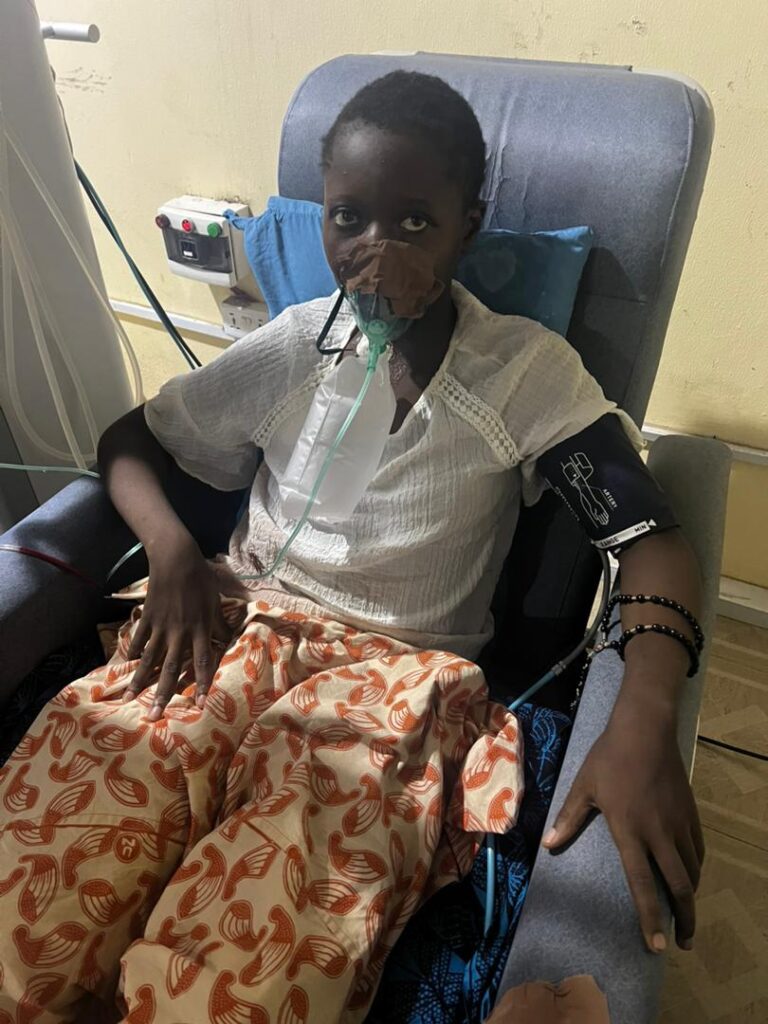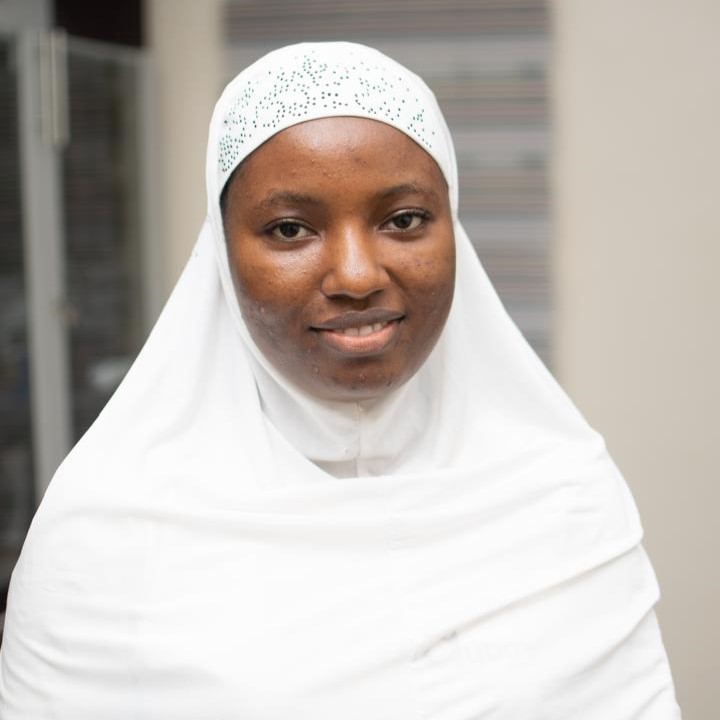What started as a nagging eye pain for Babalola Regina, a 100-level student of English Language at Obafemi Awolowo University (OAU), has turned into a life-threatening kidney problem, leaving her battling for survival at just 18 years old.
For months, Regina endured persistent pain, thinking it was a minor eye issue. But as her condition worsened, she eventually visited her school clinic for a check-up. Doctors soon delivered the devastating diagnosis: her kidneys were failing.
To save her life, the National Association of Students of English and Literary Studies (NASELS), OAU chapter, posted a flyer online, appealing for public support to raise ₦40 million needed for her urgent transplant.
“NASELS is soliciting financial assistance on behalf of one of us, Babalola Regina, a part one student of the Department of English. She has been in pain from something we thought was an eye problem, and later confirmed to be a kidney problem.
“Regina, the last born of her family, needs ₦40 million in less than two weeks for a kidney transplant,” the flyer, e-signed by the association’s president, Adio Oladimeji, reads.
How it all began
Speaking to DevReporting, Regina’s brother, Babalola Joel, described how her illness has thrown the entire family into distress.
He said, “Her ill health has affected the family emotionally, physically, and financially. My mum is a trader and my dad is a sawmill operator, but her condition stopped them abruptly from going to work, as Regina has since been living on oxygen.”
Mr Joel explained that Regina first complained on 15 May, saying her vision was blurry. Assuming it was a minor eye issue, he advised her to use eye drops. But when her eyes began to swell, she went for a check-up at the school clinic, where doctors found that her blood pressure was very high at 190.
According to him, further tests were carried out at OAU Teaching Hospital, and she was transferred on 9 June to the Seventh-Day Adventist Hospital in Ile-Ife. He explained that she was later transferred to Purplemed, a private hospital in Ibadan, where the family received the grim news that Regina was at the end stage of chronic kidney disease.
“While still on oxygen, the hospital said they don’t have a strong dialysis machine, but they have done three sessions of dialysis and an internal access surgery on her chest. After the surgery, she had a seizure within two hours, and other complications followed. Another surgery was carried out for a blood pack, but Regina is still battling for life and remains on oxygen as the crisis is in the end stage. So all her eyes, body, and legs are swollen.
“Doctors have advised an urgent kidney transplant, given her age, to save her from a lifetime of painful and repeated dialysis. Initially, we didn’t want to make this public because we thought we could handle it, but the financial burden is unbearable. She is just 18 and will be 19 by 23 July. We call on fellow Nigerians to come to our aid,” Mr Joel said tearfully.
Detection of kidney failure
A report from the Purplemed specialist medical and kidney centre and addressed to the administration of OAU health centre, dated 16 June, shows that Regina was transferred to the facility on 10 June on account of symptoms of breathlessness, vomiting, facial and leg swelling.
It stated further that she is currently being managed for acute pulmonary edema, advanced chronic kidney disease secondary to chronic glomerulonephritis (CGN). and severe sepsis focus chest and urinary tract. The centre confirmed that Regina has had three sessions of hemodialysis and was placed on antibiotics and other medications based on investigation results.
According to National Kidney Foundation, end-stage kidney disease (ESKD) means the kidneys are no longer able to work well enough to keep a person alive. With kidney failure, 85-90 per cent of the kidney function is gone.
The foundation explained that people with kidney failure have stage 5 chronic kidney disease (CKD), also known as ESKD.
Treatment options include dialysis, a process that artificially cleans the blood, or a transplant, which replaces the failing kidney with a healthy one.
What data says
Globally, ESKD is a growing health crisis. Data shows that 10 per cent of the population worldwide is affected by chronic kidney disease (CKD), and millions die each year because they do not have access to affordable treatment.
In Africa, only about 9–16 per cent of those in need of Kidney Replacement Therapy (KRT) receive it. Worldwide, many who require KRT do not receive treatment, and by 2030, it is estimated that 14.5 million people will need KRT, but only 5.4 million will receive it.
Symptoms of chronic kidney disease may include – nausea, vomiting, loss of appetite, fatigue and weakness, sleep problems, urinating more or less, muscle cramps, swelling of feet and ankles, dry, itchy skin, high blood pressure that’s difficult to control, shortness of breath, if fluid builds up in the lungs and chest pain, if fluid builds up around the lining of the heart among others.
Financial burden weighs heavily
For Regina’s father, Francis Babalola, each day has become an agonising wait for a miracle.
He confirmed that she started feeling unbearable eye and body pain when she was in school. He further noted that though some money has been raised, it is far below what is needed for the transplant. He appealed to Nigerians with the wherewithal to help keep his child alive.
“We are hoping she survives. The challenge on the ground is how to raise the money for the transplant. My mind and head are heavy, I pray that no parent will ever have to beg people for money to save their child,” Mr Babalola said.
NASELS’ intervention

The President of NASELS, Oladimeji, described Regina as a quiet and studious person.
“She started complaining about her eyes at the school clinic, but the pain turned out to be linked to her kidneys. She is now in a critical condition and needs a kidney transplant within days,” he said.
In addition to the flyers posted by NASEL to appeal for financial support, Mr Oladimeji revealed that the university’s students’ union is planning a fundraising rally on campus and social media to solicit more support for Regina.
“We have also reached out to the national president of NASEL, and we are also reaching out to media organisations and influencers. We are optimistic that the publicity will help her.”
How you can help
Regina’s life now depends on public goodwill. Donations can be sent to:
Account Number: 2064856775
Bank: UBA
Account Name: Babalola Francis Olushola
Every naira counts towards giving her a chance to live to fulfil her destiny.


